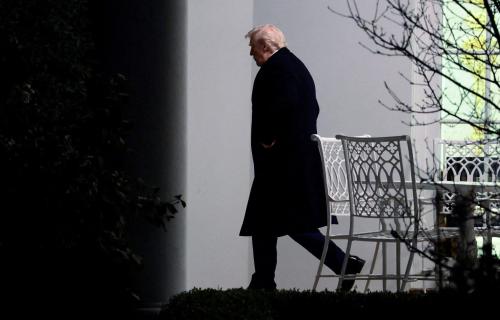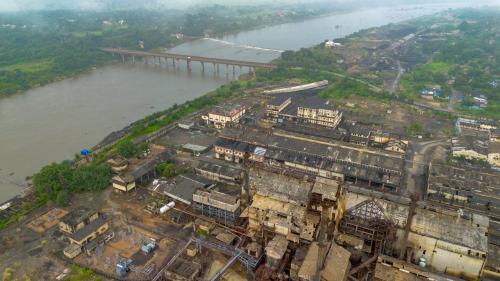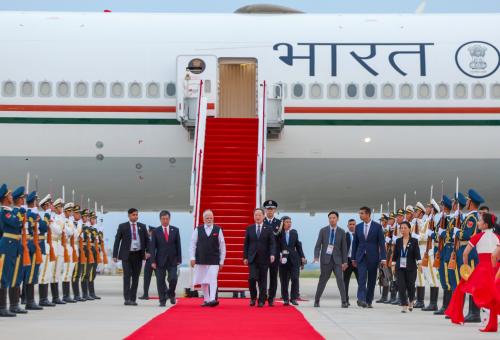As they do every four years, Europeans are tracking the presidential election campaign in the United States with a mix of apprehension and hope. And this year, as in 2004, a majority will be pulling for a Democrat in the belief that any of the party’s candidates will restore trans-Atlantic relations to their pre-Bush norm.
That’s a reasonable calculation, but Europeans also need to consider how their own actions play into the debate on American foreign policy.
When Europeans show themselves to be responsible, capable partners, they bolster multilateralists in America. But when they appear reluctant to bear burdens or take risks even for common interests, the unilateralists in the United States win the debate.
Right now, the most important test case of Europe’s ability to contribute to Western security is Afghanistan, and the latest signs are not good. The Taliban insurgency has inflicted a toll not only on NATO troops, but on domestic political support among crucial allies, including Germany, Italy and the Netherlands.
The Dutch government has postponed a decision on its deployment of 1,600 troops to Afghanistan’s difficult Urzugan Province. Should the Netherlands decide to withdraw their troops (or even re-deploy them from the difficult south), it would trigger a domino effect in other NATO countries as well as in others, such as Australia. Even if the Dutch extend the deployment, European diplomats fear that if their troops get hit by mass casualties, it will spell the end of the mission at once.
The new French president, Nicolas Sarkozy, has backed away from hints he made during the election campaign that France would withdraw from Afghanistan, but French diplomats are now urging Washington to develop an “exit strategy,” arguing that the Europeans cannot stay “forever.”
The differences in public opinion across the Atlantic are stark. A just-released German Marshall Fund survey shows that while more than two-thirds of Americans approve of combat operations against the Taliban in Afghanistan, less than one third of Europeans do.
In America, even strident critics of President George W. Bush are committed to the Afghanistan mission and would like to commit more troops there. Indeed, had John Kerry, the Democrat’s candidate for president in 2004, beaten Bush, he would likely find himself today just as frustrated as Bush with the flagging European and Canadian support.
Kerry’s Democratic colleagues now seeking the party’s nomination for president will be hard-pressed to make the case for pursuing security interests through the Atlantic Alliance if Europe will not do its share in Afghanistan.
No matter how different European and American views, the reality is that stabilizing Afghanistan will take years and significant resources – just as has been the case in the Balkans, where Europeans and Americans have been working together for more than a decade.
Unlike in the Balkans, President Hamid Karzai of Afghanistan confronts a vicious insurgency. And unlike in Iraq, where European reluctance to fight a war that most of them opposed is understandable, Washington has largely played by the rules, with full international legitimacy.
Now is the time for European leaders to remind their publics of what is at stake, both in Afghanistan and across the Atlantic. Instead of biding time until Bush leaves office, European statesmen need to explain in clear terms why what happens in far-away Afghanistan has a direct impact on European security – and that just because Bush supports the mission does not mean they should oppose it.
Instead of letting others take all the military risks in Afghanistan’s difficult south, the French, Italians and other NATO members need to share the burden and join the fight against the Taliban. The key is to convince European voters that their security is linked to a shared struggle in Afghanistan against terrorists from the same movement as those stopped recently in Germany, Denmark and Britain.
America has learned a lot over the past several years about the need for partners and international legitimacy. Europeans were largely right about Iraq, and the case for respectful trans-Atlantic diplomacy and more joint decision-making is far easier to make now than it was a few years ago.
With Europe deploying 20,000 troops and taking risks in Afghanistan for our common security, those of us in Washington who want U.S. foreign policy to move further in this direction have the upper hand. If Europe decides that such deployments – even for legitimate military conflicts critical to their own security – are just too difficult, costly, or associated with the United States – the unilateralists will return.
The Brookings Institution is committed to quality, independence, and impact.
We are supported by a diverse array of funders. In line with our values and policies, each Brookings publication represents the sole views of its author(s).



Commentary
Op-edThe Future of American Multilateralism
September 27, 2007